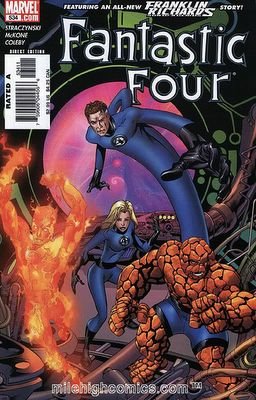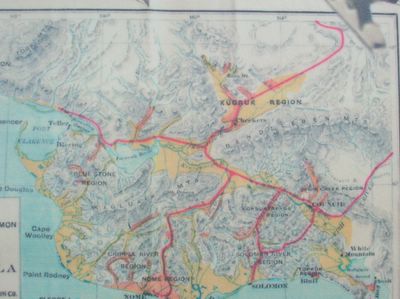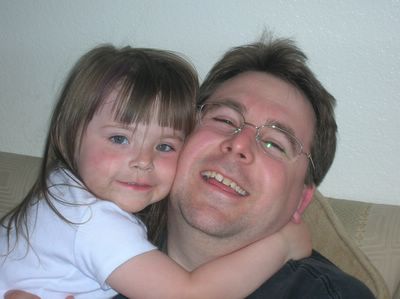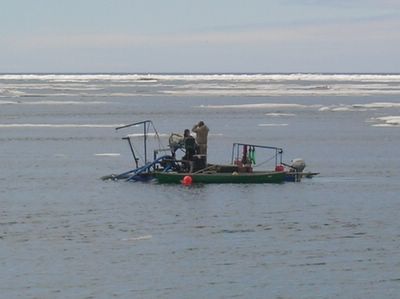Hi , Your friend Matt Butcher has invited you to join MyPoints, the Internet's leading online shopping rewards program. You'll earn free rewards for shopping online at all of your favorite stores, for taking surveys and for simply reading email. It pays to be a MyPoints member but it's free to join. Matt says: If you are not a member of MyPoints shopping program, you should be. You really do get points just for clicking links in emails. I save up my 1,500 points for a $10 Barnes & Noble gift card. In the three years I have been a member, I have collected maybe $80 or so in gift cards. Hardly something to quit your job over, but it is good for a free paperback every once in a while. You must do it. No purchases necessary, believe me. Just click the links in the emails. Trust me. |
| ||||||||||
You have been sent this email at the request of mjb0123@yahoo.com. If you are not interested in joining the MyPoints program please send an email to member.services@mypoints.com and type "Remove Me" in the subject line. MyPoints.com 188 Embarcadero, 5th Floor San Francisco, CA 94105 Copyright © 2004 - 2006 MyPoints.com®. All rights reserved. | |||||||||||
Random thoughts about all that I can muster. As William Shatner once said, "Get a life!"
Friday, June 30, 2006
*** Your friend Matt Butcher has invited you to MyPoints ***

We've had a couple of crappy weather weeks here in Nome. Amy's mom came up the absolute perfect week weather-wise. It has been foggy for days on end and has not gotten much above 45 degrees. This is nice, actually. I've always hated the hot weather during the sweltering Chicago summers. Seattle was a good switch because hot was only 90 degrees or so. We like it here, wearing light jackets. Sure, it has gotten cold during the winters, but it is fun most of the time. Morgan got her full share of snow that she always wanted. In fact, in late May, she said she was sick of snow. We really like it here. We like the small town. We like the fact that we can't just run out for fast food burgers when we're hungry. Look at that wonderful family--who wouldn't be happy with that?
Wednesday, June 28, 2006
Graphic Novel vs Trade Paperback
Over at the Comicon messageboards, we are discussing the semantics between the comic book terms GRAPHIC NOVEL and TRADE PAPERBACK. I and some of the other posters always sort of considered the graphic novel to be a presentation of original material and a trade paperback a collection of previously published stuff.
But then a poster mentioned the serialized works of Dickens. That also immediately made me think of the serialized stuff of Dumas and even Stephen King's The Green Mile.
I wrote this as a response:
Most of the actual definitions for NOVEL includes wording like: "Strikingly new, unusual, or different" or in adjectivial form: "of a kind not seen before". Only one definition calls it what we know of novel as: "A fictional prose narrative of considerable length, typically having a plot that is unfolded by the actions, speech, and thoughts of the characters" (all from dictionary.com)
This site: http://www.pbs.org/wnet/dickens/life_publication.html says that Dickens worked serially as well, only writing new chapters as stuff was being published. "He not only published serially but wrote serially too, planning each installment carefully."
We have to also remember that serials were popular because the cost was prohibitive to be a new novel rather than a series of installments. I have balked at paying for full-priced graphic novels over individual comics, haven't you?
Does it become a novel when the story is collected? I think ultimate length names the piece.
In college, I studied English. I was always given these general guidelines:
Short story: less than 50 pages (very rough here)
Novella: about 50-100 pages in length (HUGO and NEBULA awards classify this as 17,500-40,000 words)
Novel: anything longer
Not to be outdone, Dictionary.com also lists this definition for GRAPHIC NOVEL:
"A novel whose narrative is related through a combination of text and art, often in comic-strip form."
But then a poster mentioned the serialized works of Dickens. That also immediately made me think of the serialized stuff of Dumas and even Stephen King's The Green Mile.
I wrote this as a response:
Most of the actual definitions for NOVEL includes wording like: "Strikingly new, unusual, or different" or in adjectivial form: "of a kind not seen before". Only one definition calls it what we know of novel as: "A fictional prose narrative of considerable length, typically having a plot that is unfolded by the actions, speech, and thoughts of the characters" (all from dictionary.com)
This site: http://www.pbs.org/wnet/dickens/life_publication.html says that Dickens worked serially as well, only writing new chapters as stuff was being published. "He not only published serially but wrote serially too, planning each installment carefully."
We have to also remember that serials were popular because the cost was prohibitive to be a new novel rather than a series of installments. I have balked at paying for full-priced graphic novels over individual comics, haven't you?
Does it become a novel when the story is collected? I think ultimate length names the piece.
In college, I studied English. I was always given these general guidelines:
Short story: less than 50 pages (very rough here)
Novella: about 50-100 pages in length (HUGO and NEBULA awards classify this as 17,500-40,000 words)
Novel: anything longer
Not to be outdone, Dictionary.com also lists this definition for GRAPHIC NOVEL:
"A novel whose narrative is related through a combination of text and art, often in comic-strip form."
Tuesday, June 27, 2006
Which Superhero are You?
Your results:
You are Superman
Click here to take the Superhero Personality Test
You are Superman
| You are mild-mannered, good, strong and you love to help others. |
Click here to take the Superhero Personality Test

Fantastic Four #534 (March 2006) and #535 (April 2006)
I was never a supreme Fantastic Four fan. I was huge into Marvel in the 1980s and very early 1990s, especially the X-Men. I think the X-Men fanaticism came from all my friends loving the group and Chris Claremont's absolutely fantastic writing. I also read my friend's Avengers books. As a kid devouring those comics back then, I still remember most of them by cover alone. I can still tell you what happened in most of them if you give me the issue number. Somehow, Fantastic Four never really made that list.
I picked up these two new books simply because the grocery store where I live in Nome, Alaska, had them. I don't have a comic store to just wander into. The store only has a limited supply and those are mostly Marvels for some reason. The only DC title they carry is Batman. Not a single Superman comic to be found. I liked last year's FF movie. I wanted a comic. I grabbed what is still dubbed "The world's greatest comic magazine!"
However, issue #534 started off swinging. The Hulk versus The Thing. I normally don't mind a quick start but there must have been something that happened in issue #533. The Thing does give a quick little synopsis that he has to bring The Hulk in because he has gone crazy again (apparently a recurring problem in the Marvel Universe from when I devoured them in the 1980s). But, and there is a big "but" here, the comic does not say "Part 2." It doesn't even have The Hulk on the cover, just a group shot that never happens in the actual comic because the four never actually appear together.
It is a pretty good fight though. The Hulk is seeing things in his brain, past events that he is fighting in his mind. The Torch is helping. It's pretty neat. Fun, slam-banging action that Marvel is good for. Unfortunately, it is "To be continued..."
So I had to pick up the next issue #535. I had to find out what happened. Luckily, my grocery store got it. I picked it up as my family and I were shopping and brought it home (another plug for getting the comics back into the grocery stores so kids-and kids at heart-can talk their families into snagging one every once in a while when at a regular store, but I digress).
More fighting. More slam-bang action. There's a sub-plot of Mr. Fantastic and his wife the Invisible Woman having to send their kids (when did they have the second one? I only knew about Franklin) to foster care due to some court order. The Hulk's inner monologue talks about the possibility that he "can never be free of the monster." The Thing gets whupped (which in itself is important to Marvel fans as you always wonder who would really beat who when it came down to it) and the Torch goes nova to protect him. Mystically, that pain shocks The Hulk back to his normal self. "I'm all right now," he says.
The fun little sub-plot with the kids and a switcheroo helps to prove Mr. Fantastic's point that his kids are safe by his side only. The Hulk and The Thing talk about "the end" and life goes on.
I could see myself being twelve and reading this. I could see showing my buddies and talking about it. I could even see me interpreting the discussions about the end and the being of a monster. It was a fun story and I didn't even have to have issue #533 to understand it. I don't have to read issue #536 now either. The story is over and done with. It was a good read.
But it's not for me anymore. I'm not twelve but twenty-one years older than that. Watching The Hulk and The Thing go at it and then a simple snap back to reality just didn't do it for me any more. I saw the switcheroo coming with the kids, either because of the absolutely phenomenal number of comics that I have read during my lifetime or the fact that I'm an English teacher and understood the plot structure and foreshadowing.
Some comics are good at twelve, like this one. Some are good at thirty-three, like the 1980s Hellblazers I have been getting into lately. I wouldn't have liked the Hellblazer comics back in the 80s. Sometimes, we can go back, and sometimes we can't. I guess there are age ranges, and limits, to some comics.
Old Dating Tips

Popular Romance #17
This if from a ten cent comic from February 1952. Geared towards girls, it provided some dating tips. Are they still applicable? Were they ever applicable? I found this while looking for old sci-fi comics at the website called Science Monster.
If you'd like to keep the boys you date calling you, you should know just what's right to wear, say and do! Suitable clothes, good manners and a pleasant personality will keep your phone a-ringing.
FOOTBALL GAME
When you attend your first football game, don't make a pest of yourself by asking your escort to explain every play as it happens. You won't be giving him a chance to enjoy the game. Read up on the sport beforehand so you have a general idea of what it's all about. Your date will appreciate it and you'll get much more fun out of it. It isn't bad manners to root enthusiastically for your favorite team, so cheer them on! And don't keep sending your date to get you something to eat. He wants to SEE the game!
ICE SKATING
When your crowd of friends plans to spend the day out-of-doors ice-skating, daon't say "no" if you've never skated! It's fun to learn and even though your ankles may feel wobbly after the first time you'll enjoy yourself. One of the fellows will always be willing to help you around the ice until you get the swing of it. But dress wisely! It's more comfortable to wear three light-weight wool sweaters instead of one heavy, bulky sweater. And don't go in for a fancy skating outfit for your first time on the ice. You'll be more at ease and better protected wearing ski pants or slacks tucked into your skating shoes. To top the day off, invite the crowd to your house for hot chocolate.
PROGRESSIVE PARTY
If your friends are tired of the usual type of party, why not plan something different and very amusing--a progressive party? It's always a success! Each girl will concentrate on one course of the meal, so it will be extra-special! First on the menu can be small party snacks and a lovely fruit cup. Then chicken a la king and hot biscuits. For a truly fancy dessert the girl serving the last course could have ice cream sundaes! These dishes are just suggestions but there are endless possibilities. Besides being a lot of fun this type of party offers an excellent opportunity for each girl to experiment with a new dish and add it to her "specialities." The old saying that "the way to a man's heart is through his stomach" has worked more than once. But if you're not too good at cooking I'm sure your Mom will be ready with a few pointers.
Have fun and be fun to be with. That'sthe key to popularity!
Monday, June 26, 2006
Insurance marketing campaign
As I always try to incorporate some media savvy into my classroom, I just can't help but think of the Progressive Insurance Company ad campaign recently. Actually, all insurance company advertising is somewhat informative on the subject of advertising right now.
Progressive's main scheme is going to their website and not only getting a Progressive car insurance quote but also getting quotes for at least three other companies. They make sure to tell us that sometimes they are the lowest and sometimes they aren't. Then they tell us that if Progressive is this helpful when shopping for insurance, imagine how wonderful they will be when we're customers.
In a roundabout way, they are being extremely smart here. They know they aren't the best priced all the time. They can't get into a price war all the time and simply advertise that they sell for less all the time. They apparently know they are middle of the road on pricing. What's good about it is that they have suckered us into accepting their median pricing because they are so noble in telling us about it. "We know we aren't cheap, but at least we're honestly telling you about it up front! Doesn't that make you want to use our company?" I am not knocking it because the ad campaign seems to be working. And they have a nifty jingle.
Now Geico is actually coming out and giving away advertising secrets. Lately, they have given this gecko mascot of theirs a London accent and having him on talk shows. He openly tells the audience that he is there for entertainment value, for a little show. People like a cute gecko. This one, opposed from the Progressive campaign, actually chaps my hide as an educated individual. This gecko is saying, without telling us really anything about the company other than a slight possibility of saving money on car insurance, that he is there to draw us in. You know, I didn't mind when they were just using the gecko--mascots are everywhere. But when the mascot comes out and tells me that he is there for entertainment value and to get my attention, I find that insulting. It is almost like the advertisers are spitting on me. "Ve vill dangle dis gecko in front of you and you vill jump at it, you pathetic consumer! And ve vill also tell you ve are going to do it!"
Progressive's main scheme is going to their website and not only getting a Progressive car insurance quote but also getting quotes for at least three other companies. They make sure to tell us that sometimes they are the lowest and sometimes they aren't. Then they tell us that if Progressive is this helpful when shopping for insurance, imagine how wonderful they will be when we're customers.
In a roundabout way, they are being extremely smart here. They know they aren't the best priced all the time. They can't get into a price war all the time and simply advertise that they sell for less all the time. They apparently know they are middle of the road on pricing. What's good about it is that they have suckered us into accepting their median pricing because they are so noble in telling us about it. "We know we aren't cheap, but at least we're honestly telling you about it up front! Doesn't that make you want to use our company?" I am not knocking it because the ad campaign seems to be working. And they have a nifty jingle.
Now Geico is actually coming out and giving away advertising secrets. Lately, they have given this gecko mascot of theirs a London accent and having him on talk shows. He openly tells the audience that he is there for entertainment value, for a little show. People like a cute gecko. This one, opposed from the Progressive campaign, actually chaps my hide as an educated individual. This gecko is saying, without telling us really anything about the company other than a slight possibility of saving money on car insurance, that he is there to draw us in. You know, I didn't mind when they were just using the gecko--mascots are everywhere. But when the mascot comes out and tells me that he is there for entertainment value and to get my attention, I find that insulting. It is almost like the advertisers are spitting on me. "Ve vill dangle dis gecko in front of you and you vill jump at it, you pathetic consumer! And ve vill also tell you ve are going to do it!"
Steinbeck
I swear that I have to start remembering this when I undertake a work.
John Steinbeck once said, "When I face the desolate impossibility of writing 500 pages, a sick sense of failure falls on me, and I know I can never do it. Then gradually, I write one page and then another. One day's works is all I can permit myself to contemplate."
John Steinbeck once said, "When I face the desolate impossibility of writing 500 pages, a sick sense of failure falls on me, and I know I can never do it. Then gradually, I write one page and then another. One day's works is all I can permit myself to contemplate."
Picture of Dorian Gray
I recently read The Picture of Dorian Gray by Oscar Wilde online. Yes, actually online. It wasn't bad at all. My eyes didn't seem to get as heavy since my hand was moving the cursor arrows or mouse-wheel anyway. And I was always sitting straight up and not lying on my back like I usually read a book. I read a chapter a day, about ten pages. I never read it before. After League of Extraordinary Gentlemen and the fact that I have an English degree, I thought I should read it for myself. I enjoyed it. Most of it is told in dialogue. That’s all right because there isn’t much action in it really, only psychological thinking.
“He got up, and locked both doors. At least he would be alone when he looked upon the mask of his shame. Then he drew the screen aside,and saw himself face to face. It was perfectly true. The portrait had altered.”
“He got up, and locked both doors. At least he would be alone when he looked upon the mask of his shame. Then he drew the screen aside,and saw himself face to face. It was perfectly true. The portrait had altered.”
Another film class post
I think this will always be a hard question to define art with the advent of photography and film. It’s kind of like the old adage that lawmakers used to define obscene and indecent materials: “I know it when I see it.” How does Ansel Adams’ photographic work while he was working for the Department of the Interior now get considered art and hang on our living room walls when I could technically take a picture almost exactly the same? I don’t know, but it is. Why is that new foreign film considered an “artsy” film over a summer blockbuster? I don’t know, but it is.
When photography came, anyone could now be an “artist.” Reproducing an image became too authentic. Painting a still life of a bowl of fruit was art; nobody photographs a bowl of fruit (at least not to hang on their living room wall).
With film, many believe that true acting has disappeared. Multitudes of re-takes to get the scene done just right when a stage performance has to be as perfect as it can be the first time. This does not make film any less, however, as an actor eventually showcases his best performance and then goes on a promotional tour to plug the movie.
Film and photography all of a sudden gave us a way to view life one image at a time, over and over again. A painter could touch-up a painting and interpret the actual image but originally the photo would show the bruise. Photos show us too much, revealing it all. It’s like the way that psychology terms shed light on everyday things in people. They were always there but these new terms cause us to notice them. Now we apply psychology on ancient events to gain further insights, even though it was already there—we now though can see it more clearly and have the terms to talk about it. Shakespeare may not have known the terms, but he was a master of psychology—but how? Should he then be the father of psychology? Does it go back even further?
Politics then plays into film and the filmmaker doesn’t even have to understand the terms of politics. It especially works that way on an unknowing audience. If I watch Fahrenheit 9/11 without knowing politics or any of the facts, I am going to probably think exactly like the director thinks about President Bush. The film is a great tool for debate but you cannot let it be your only source of information.
Oliver Stone’s JFK works the same way. Laymen (including myself) have not studied the Warren Commission, so then, these seeming experts have to be telling the truth. However my bias may appear, the movie does spark interesting debate. There are many things that need to be looked at again from this new perspective. Both sides may not have thought about these aspects of the assassination and the new stuff that this movie talks about (and in 1991 conspiracy theories flourished on this), much like we now perceive psychology as mentioned above.
Any other filmmaker is quite capable of making a film on the contrary position, with or without proof. They could make one called The Lone Gunman. They could be more or less objective or subjective. The problem with that though is it came second and will always be subjected to more criticism.
When photography came, anyone could now be an “artist.” Reproducing an image became too authentic. Painting a still life of a bowl of fruit was art; nobody photographs a bowl of fruit (at least not to hang on their living room wall).
With film, many believe that true acting has disappeared. Multitudes of re-takes to get the scene done just right when a stage performance has to be as perfect as it can be the first time. This does not make film any less, however, as an actor eventually showcases his best performance and then goes on a promotional tour to plug the movie.
Film and photography all of a sudden gave us a way to view life one image at a time, over and over again. A painter could touch-up a painting and interpret the actual image but originally the photo would show the bruise. Photos show us too much, revealing it all. It’s like the way that psychology terms shed light on everyday things in people. They were always there but these new terms cause us to notice them. Now we apply psychology on ancient events to gain further insights, even though it was already there—we now though can see it more clearly and have the terms to talk about it. Shakespeare may not have known the terms, but he was a master of psychology—but how? Should he then be the father of psychology? Does it go back even further?
Politics then plays into film and the filmmaker doesn’t even have to understand the terms of politics. It especially works that way on an unknowing audience. If I watch Fahrenheit 9/11 without knowing politics or any of the facts, I am going to probably think exactly like the director thinks about President Bush. The film is a great tool for debate but you cannot let it be your only source of information.
Oliver Stone’s JFK works the same way. Laymen (including myself) have not studied the Warren Commission, so then, these seeming experts have to be telling the truth. However my bias may appear, the movie does spark interesting debate. There are many things that need to be looked at again from this new perspective. Both sides may not have thought about these aspects of the assassination and the new stuff that this movie talks about (and in 1991 conspiracy theories flourished on this), much like we now perceive psychology as mentioned above.
Any other filmmaker is quite capable of making a film on the contrary position, with or without proof. They could make one called The Lone Gunman. They could be more or less objective or subjective. The problem with that though is it came second and will always be subjected to more criticism.
Thursday, June 22, 2006

Another classic ad from old comic books. Look at this! One hundred pieces for only $1.75! Phenomenal! I had a couple sets of these. We used to set up our armies and then pretend to throw the bombs and shoot. I remember that the bombs would go up and when they came down you were allowed to put your whole palm out for the destruction. Whatever flattened got taken off the battlefield. Ah, wanton destruction and mayhem!
The Super Naturals Review

My review is up at Independent Propaganda for Jam Packed Production's new comic entitled THE SUPER NATURALS. What a great little comic!
Wednesday, June 21, 2006
Hitchcock Review: Under Capricorn
I had never gotten around to renting this one before. Somehow, it has always slipped under my radar. It came up finally under my Netflix queue and voila!
From 1949, Under Capricorn pairs up two of my favorite screen stars so this is another wonder that I had never seen this one yet. An uncharacteristic historical novel set to the screen for director Alfred Hitchcock, it stars Joseph Cotten and Ingrid Bergman as a married couple in 1830s Australia. You know what they say about Australia being populated by nothing but criminals. That is why Cotten was sent there from his home country of Ireland. Bergman followed him, foolishly in love.
The story starts with some Irish git gentleman that has not a penny in the world and wants to find his stake. He finds Cotten who is now one of the richest men in New South Wales. When he finally meets Bergman, and small world that it is as she was once his sister’s best friend, she is drunker than a skunk and can barely stand.
That starts the slight mystery. There is a wicked staff employed by Cotten and some little things to figure out along the way, such as Bergman seeing things that aren’t there. I was watching, waiting for it to get better.
It was worth watching. I was enthralled at the characters. Cotten and Bergman again did supremely excellent jobs, although I thought Bergman overacting a bit during one emotional scene, making it the same acting job as in her movie Gaslight. The actor who played Charles the Irish gentleman, Michael Wilding, was okay, I mean, he played the role well, but I think it needed to be someone bigger, with a greater stage presence and rugged good looks. Maybe that is why I did not see the love triangle as anything but forced because he did not seem suave enough. That might just be my tastes there.
I just don’t see why Hitchcock did this one. I will have to research that. He wasn’t under his contract with David Selznick anymore. It had the feeling of a very well done made-for-tv movie. The soap opera elements made it interesting to watch. I had to keep watching just to find out how it would all explode.
For the Hitchcock fan, or a Cotten or Bergman fan, it was well worth watching. It is not one of Hitchcock’s better movies, but then I am comparing this to some of his really supreme movies out there. Now that I have seen this once, I can check it off my list of Hitchcock movies and leave it at that. I will give it three out of five stars because I was interested in this the first time around, but unlike his other movies, I don’t think I will go out of my way to see this one again.
From 1949, Under Capricorn pairs up two of my favorite screen stars so this is another wonder that I had never seen this one yet. An uncharacteristic historical novel set to the screen for director Alfred Hitchcock, it stars Joseph Cotten and Ingrid Bergman as a married couple in 1830s Australia. You know what they say about Australia being populated by nothing but criminals. That is why Cotten was sent there from his home country of Ireland. Bergman followed him, foolishly in love.
The story starts with some Irish git gentleman that has not a penny in the world and wants to find his stake. He finds Cotten who is now one of the richest men in New South Wales. When he finally meets Bergman, and small world that it is as she was once his sister’s best friend, she is drunker than a skunk and can barely stand.
That starts the slight mystery. There is a wicked staff employed by Cotten and some little things to figure out along the way, such as Bergman seeing things that aren’t there. I was watching, waiting for it to get better.
It was worth watching. I was enthralled at the characters. Cotten and Bergman again did supremely excellent jobs, although I thought Bergman overacting a bit during one emotional scene, making it the same acting job as in her movie Gaslight. The actor who played Charles the Irish gentleman, Michael Wilding, was okay, I mean, he played the role well, but I think it needed to be someone bigger, with a greater stage presence and rugged good looks. Maybe that is why I did not see the love triangle as anything but forced because he did not seem suave enough. That might just be my tastes there.
I just don’t see why Hitchcock did this one. I will have to research that. He wasn’t under his contract with David Selznick anymore. It had the feeling of a very well done made-for-tv movie. The soap opera elements made it interesting to watch. I had to keep watching just to find out how it would all explode.
For the Hitchcock fan, or a Cotten or Bergman fan, it was well worth watching. It is not one of Hitchcock’s better movies, but then I am comparing this to some of his really supreme movies out there. Now that I have seen this once, I can check it off my list of Hitchcock movies and leave it at that. I will give it three out of five stars because I was interested in this the first time around, but unlike his other movies, I don’t think I will go out of my way to see this one again.
Tuesday, June 20, 2006
Monday, June 19, 2006

Hilariously, we were walking a beach a ways outside of Nome with Amy's mother when Morgan came across two rocks. "They look identical," she said. Grandma said, "They look like eggs." Just then an Arctic Tern proceeded to accost us all and threatened to peck at us like that Hitchcock movie The Birds. It was quite funny. Morgan was shocked and actually started crying for a while. Now we are all laughing.

This is a closeup shot of the map on one of the information plaques next to the Last Train to Nowhere. You can see their grand ambition of how much railway they were looking at doing. This is hundreds of miles of track that they had planned to accomodate the gold. The signs go on to say that lack of planning and loss of financial support doomed the entire project.

Thirty-three miles outside of Nome is the Last Train to Nowhere. This rusting behemoth is left over from the old gold rush times when they had visions of blanketing the Seward Peninsula with railways. Now this train just sits out here to rust away. It is in the middle of nowhere. No tracks remain, just this hulking piece of metal. You can slightly see the settlement known as Solomon in the distance.
Subscribe to:
Comments (Atom)















